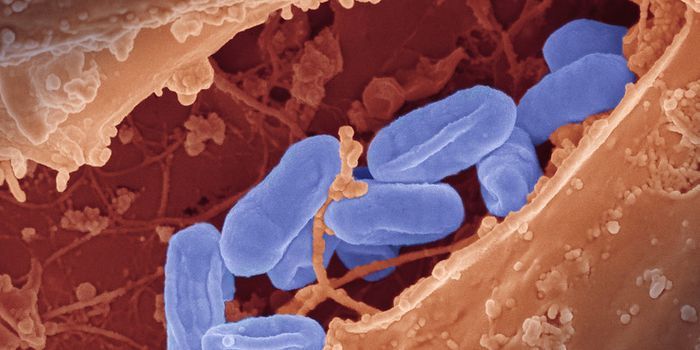Mesothelioma: What Is it and What can Patients Diagnosed With it Do to Improve Quality of Life

The United States Food and Drug Administration (USFDA) considers a condition an orphan disease if it affects fewer than 200,000 individuals nationwide.
Orphan diseases like mesothelioma do not often get the recognition they require.
Some people think it is not worth investing research dollars in solving a condition very few people have. Still, others think existing preventive measures have already adequately addressed the mesothelioma problem.
Consequently, few people know the nature, causes, and symptoms of mesothelioma, let alone the different ways patients can improve their quality of life after their diagnosis.
Therefore, accessible information is vital in helping ease affected individuals’ worries. For instance, you may want to learn more about mesothelioma stages to better understand how to manage this condition.
This article explains what mesothelioma is and what steps patients with this type of cancer can take to improve their quality of life. You may also read about the different treatment options that can help manage or cure the condition.
Read on to learn more about the details you should know regarding mesothelioma.
Ways to Improve the Quality of Life of Patients With Mesothelioma
Although mesothelioma is potentially life-threatening, preventive measures can help patients live better while receiving treatment.
A patient’s improved quality of life may also help improve the outlook for their condition (prognosis).
Focusing on essential aspects of health may help enhance the patient’s overall quality of life.
Here are several lifestyle changes you may adopt to help ease symptom-related discomfort:
- Shortness of breath: You may do relaxation exercises to relieve muscle tension because tense muscles consume more oxygen. Some of these exercises include guided visualization, meditation, and relaxation recordings.
- Moreover, take frequent rest when walking or performing any physical exercise.
- Pain: Although not all cancer patients experience severe difficulties with pain, some do. Cancer pain may happen suddenly (acute pain) or continuously over a long period (chronic pain).
- You can play a crucial role in managing your pain by expressing your feelings and describing the pain to your health support community.
- Pain may worsen when you are anxious, tired, depressed, or worried. Talking through your emotions with your close friends or loved ones may help.
- If your pain continues after you take lighter medications, your physician may introduce prescription medicines. Various medications, such as antidepressants, narcotics, and anticonvulsants, may help reduce your pain.
- Loss of appetite: There are many reasons you may lose your appetite. These reasons may include depression, tumor growth, pain, nausea, difficulty swallowing, and changes in smell and taste.
- You must eat as much as you can to maintain weight. Patients who eat may be able to cope better and fight off the condition constructively. Eat the food you find that suits your taste, and you can eat it without difficulty.
Generally, mesothelioma is already at an advanced stage when diagnosed. This situation may make it more challenging for patients to come to terms with the diagnosis.
Moreover, mesothelioma patients may experience varying degrees of discomfort depending on the disease’s progression.
Still, regardless of the mesothelioma stage, you may consider applying the suggestions above to help you manage your symptoms and improve your quality of life.
What Is Mesothelioma?
Mesothelioma is cancer that originates in the lining covering the outside of particular organs in the body. Asbestos exposure typically causes this condition.
Other possible risk factors include genetic predisposition and past exposure to radiation treatments.
Moreover, mesothelioma primarily affects the following organ linings:
- Pleura (lining of the chest and lungs)
- Peritoneum (lining of the abdomen)
- Pericardium (lining of the heart)
Although mesothelioma is rare, it is a severe condition that is usually at an advanced stage when diagnosed.
The diagnosis of new mesothelioma cases in the US is around 3000 yearly.
Mesothelioma spread often shows metastatic symptoms, which means these symptoms grow and become more frequent over time.
Early-stage (stages 1 and 2) symptoms typically include:
- Difficulty breathing
- Weight loss
- Persistent coughing
- Fatigue
- Chest pain
- Fever
On the other hand, advanced-stage (stages 3 and 4) mesothelioma cases may show the following symptoms:
- Dysphagia or swallowing difficulties
- Increased fatigue
- Hemoptysis, or the coughing up of blood
- Pleural effusions (fluid buildup in the tissue layers between the lungs and the chest cavity)
- Fever
- Night sweats
Managing Mesothelioma
The extent of cancer's spread and an individual’s general health are two factors that determine the best treatment option for mesothelioma.
People with mesothelioma usually find out that they have the condition when it is already at an advanced stage. Consequently, treatment typically focuses on symptom management and life extension.
The following list shows available treatments for mesothelioma:
- Chemotherapy: This option is the primary treatment for mesothelioma. Chemotherapy involves using medication to weaken cancer.
- Radiotherapy: This treatment procedure uses high-energy radiation to eliminate cancer cells. Consequently, specialists use radiotherapy to slow cancer down and manage its spread.
- Surgery: If the mesothelioma diagnosis occurs very early, an operation can remove the cancerous area. However, it remains unclear whether surgery is beneficial.
You may also receive treatment for your particular symptoms to make you as comfortable as possible.
For instance, regularly draining fluid from your chest may improve your breathing ability. Powerful painkillers may also help you better manage your discomfort.
Some at-home procedures may involve a tube insertion in your chest to remove the fluid routinely.
References
1. Incidence of Malignant Mesothelioma, 1999–2018
https://www.cdc.gov/cancer/uscs/pdf/USCS-DataBrief-No27-March2022-h.pdf
2. Orphan Products: Hope for People With Rare Diseases
3. Mesothelioma
https://www.nhs.uk/conditions/mesothelioma/
4. Risk Factors for Malignant Mesothelioma
https://www.cancer.org/cancer/malignant-mesothelioma/causes-risks-prevention/risk-factors.html
5. Mesothelioma: Statistics
https://www.cancer.net/cancer-types/mesothelioma/statistics
6. Mesothelioma Stages
https://www.mesotheliomagroup.com/mesothelioma/stages/








